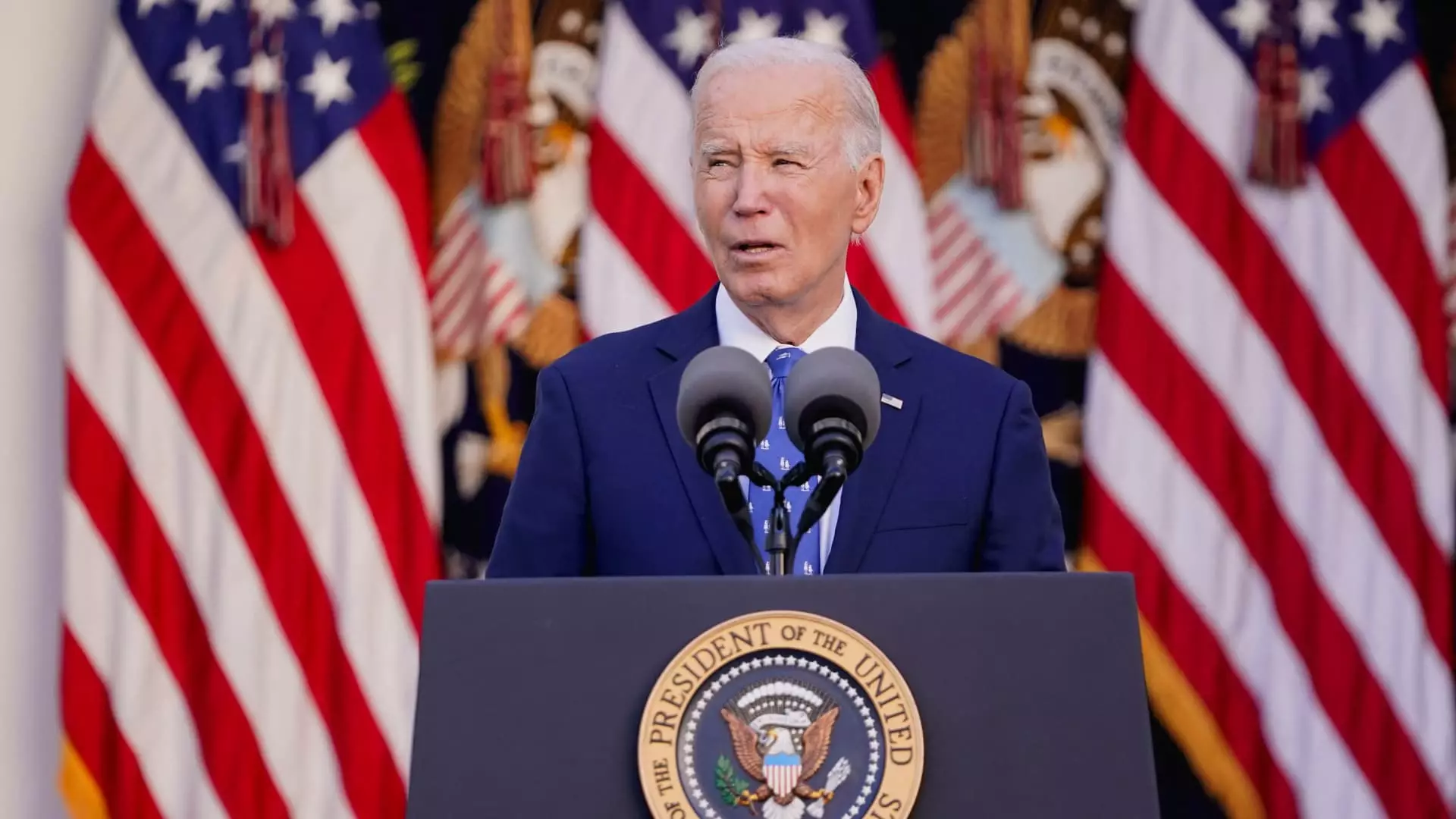The recent political upheaval in Syria, culminating in the fall of President Bashar al-Assad, symbolizes a momentous shift for a nation long plagued by tyranny and civil strife. President Joe Biden remarked that this transition presents an “historic opportunity” for the people of Syria, who have endured years of suffering and oppression. As the remnants of Assad’s regime fade, the question shifts from what was to what could be. This juncture is critical, not only for the stability of Syria but for the broader geopolitical landscape of the Middle East.
Biden highlighted the need for unity among the Syrian populace and the importance of establishing a new form of governance that reflects the will of the people. The call for an inclusive, independent government deserves earnest attention. However, a glance at Syria’s recent past raises questions about whether the myriad factions that fought against Assad can coalesce into a collaborative government or whether deeply ingrained divisions will resurface, leading to further conflict.
The United States has pledged support not only for the nascent Syrian government but also for neighboring countries like Jordan, Iraq, Lebanon, and Israel that may face repercussions from Syria’s political transformation. This involvement underscores a broader strategy to stabilize the region in the face of uncertainty. However, the effectiveness of U.S. intervention depends heavily on a comprehensive understanding of the local dynamics as well as the interests and needs of the Syrian people.
While Biden reaffirmed the commitment to combating the Islamic State (ISIS), the need to counterbalance potential chaos in the absence of Assad is paramount. Precise air strikes against ISIS positions indicate that military action remains a key component of U.S. policy. Yet, the challenge lies in crafting a holistic strategy that goes beyond military action; one that integrates diplomatic, humanitarian, and long-term developmental efforts. Aligning these dimensions is crucial if the U.S. aims to foster lasting peace rather than a temporary cessation of violence.
Risks and Challenges in the Transition
Despite aspirations for a brighter future, the road ahead is fraught with risks. Biden called attention to the complexity of the Syrian rebel landscape, acknowledging that some groups may pose threats not just to ISIS but also to stability and equity in governance. Past actions of certain factions raise significant alarms about human rights and terrorism. The challenges are multifaceted; as various groups strive for power, the potential for infighting cannot be ignored.
These concerns amplify the need for a cautious and balanced approach in forthcoming U.S. and international policies. Keeping a vigilant watch on the emerging leadership and involving a diverse array of Syrian voices in governance discussions will be essential to ensure a genuinely representative regime. It’s crucial for international partners to maintain engagement while fostering accountability.
Humanitarian Considerations
In addition to the political and military strategies, President Biden emphasized humanitarian support as a cornerstone of America’s involvement in this new chapter for Syria. After more than a decade of civil war, the dire humanitarian situation demands immediate action. Provides relief and rebuilding efforts will require significant investment and sustained commitment from the international community. Essential services such as healthcare, education, and infrastructure must be prioritized to help the Syrian people reclaim their lives and foster a sense of normalcy.
Significantly, President Biden’s commitment to the return of American journalist Austin Tice—a victim of the conflict—highlights the human cost of the war and serves as a call to address the plight of all hostages in the region. The quest for justice and accountability must extend beyond Tice, touching on the broader implications of war crimes and human rights abuses committed throughout Syria’s tumultuous history.
As Syria stands on the brink of a new era, a mix of cautious optimism and realistic apprehension permeates the atmosphere. The U.S. and its allies must tread carefully, acknowledging the rich tapestry of Syrian society while prioritizing the protection of its citizens and their aspirations for freedom. The journey will be arduous, requiring persistence in diplomatic engagement, military vigilance, and humanitarian generosity. Yet, the potential for a rebuilt, democratic Syria spurs hope in a landscape long dominated by despair. Ultimately, the success of this transition hinges not just on political maneuvers, but on the resilience and unity of the Syrian people as they strive to reclaim their narrative.


Leave a Reply